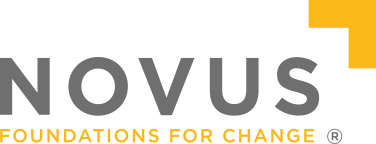Reading as rehabilitation: Literacy programmes in prisons
Adult Provision English & Maths

The role of literacy in prison rehabilitation
Literacy is an essential functional skill that everyone has the right to learn; without it, learners have a limited number of opportunities available to them.
Without having the basic fundamental skills to thrive in society, learners will find it difficult to find and obtain long-term employment which could result in them reoffending. Learners who receive an education while in prison are significantly less likely to reoffend within 12 months of release.
By improving their confidence and ability in literacy, we help learners close their skills-gaps so they can find and retain employment upon release, in turn reducing reoffending rates.
One of the key ways we engage learners in our literacy programme is through reading. Reading gives learners the opportunity to develop essential literacy skills, expand their knowledge and find pleasure in learning.
At each prison where Novus operate, we place a particular importance on our reading strategy, in order to engage more and more learners in reading.
Providing reading support for learners at HMP Hindley
A learner taking part in the recycling workshop, was referred to HMP Hindley’s reading specialist, Jo Williams, by one of the instructors in the workshop. The instructor noticed that the learner was having difficulties reading and completing paperwork.
From the one-to-one support from the reading tutor, the That Reading Thing programme and various support strategies, the learner was able to make great progress with his reading and spelling skills. So much so, that the learner explained to his tutor that he was going to continue to develop his reading skills on release, upon which the tutor passed on details to his probation officer for support with this.
Improving reading skills at HMP Risley
A learner at HMP Risley was referred to Risley’s reading specialist after asking for support with their reading. This was also reinforced by the maths tutor, who had noticed that the learner may need some reading support, but advised that the learner had a fantastic attitude and really wanted to improve his reading skills.
The learner was screened and had a reading score of 30 and a spelling of 50.5, indicating that he needed support level 3, a one-to-one phonics approach, for both. From weekly one-to-one support from the reading tutor, the That Reading Thing programme and comprehension development, the learner was able to make excellent progress with his reading.
Due to the learner’s hard work and determination, he was able to increase his reading and spelling skills, enabling him to progress into joining an English class to study entry level 3 English, indicating that he has improved his reading skills enough to be able to access the English assessment.
Supporting learners into education via reading at HMP Buckley Hall
A learner at HMP Buckley Hall who was initially reluctant to take part in the education provision, gained the confidence necessary to take part in classes thanks to the support they received in reading.
An initial reading screening gave a score of 72 for reading, support level 3 which recommends one-to-one phonics teaching and 53 for spelling, support level 2 which recommends an entry English class for spelling.
The learner started the That Reading Thing programme with the reading specialist tutor and over time was able to get used to taking the time needed to employ strategies to read new words, something he struggled with previously.
As the learner started to make progress, he was delighted he could now read and spell longer and unfamiliar words. Due to his new-found confidence, he became interested in learning because he realised he was capable of doing it.
Broader benefits of literacy in prisons
Encouraging learners to read and gain essential literacy skills goes beyond their personal development. It also has broader benefits for the wider community.
Learners who engage in education are more likely to become rehabilitated members of society, creating a positive knock-on impact on their communities. Gaining essential skills in literacy will also equip learners with the skills necessary to communicate effectively, leading to stronger relationships and strengthening bonds within the community.
Reading and literacy can also help learners to develop positive coping skills, giving them a positive outlet to express their feelings and emotions when they’re struggling with issues such as anxiety and depression.
Reading success story at HMP Liverpool
Recently, a learner at HMP Liverpool who initially had low literacy levels, made excellent progress in reading thanks to the support from colleagues and reading initiatives at the prison.
The learner struggled with dyslexia, autism, ADHD, and mental health problems. He shared that he had had negative experiences at school, which resulted in him having low self-esteem and didn’t see himself as someone who would be able to learn to read or write, and that trying made him frustrated and angry at himself.
The reading tutor worked with the learner weekly, on a one-to-one basis, mainly using That Reading Thing programme. The learner made excellent progress, improving both his reading and spelling skills.
As the learner’s release date approached, he started to become anxious again. However, due to the skills he had gained and progress that he had made in his reading programme, the learner was able to use writing as a positive outlet to document his worries and all of the positives that were waiting for him on his return to the community.
Taking part in literacy programmes shows learners that they are capable of learning and obtaining the skills needed to thrive in society, increasing their confidence and self-esteem, motivating them to become positive members of society upon release.
The challenges and opportunities of teaching literacy in prison
When it comes to teaching literacy in prison, there can be some challenges. With an estimated 57% of adult prisoners having low literacy levels below those expected of an 11-year-old and 30% of prisoners having a learning difficulty or learning barriers, it is important that we engage learners in literacy so they can gain the basic skills needed to navigate through daily life.
From tailored lessons plans, learning difficulties and disabilities (LDD) screeners and support strategies to support learners in classes, we are making sure that all learners are able to access education in a way that benefits them.
The way forward with Novus
At Novus, we are dedicated to supporting as many learners with their reading and literacy as possible. Our team of dedicated and trained tutors and reading specialists work with learners on a day-to-day basis to support their progress in education so they are equipped with the relevant skills and knowledge necessary to thrive upon release.
To read more about our reading provision, take a look at our news section.


